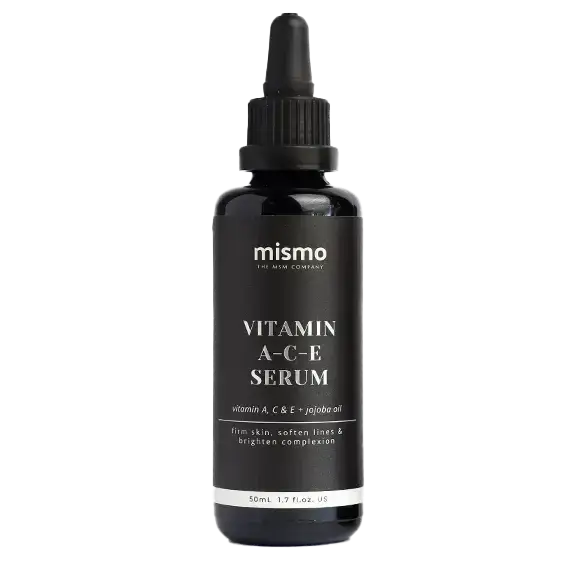Vitamin C is one of the most talked-about skincare ingredients—and for good reason. But with so much info (and a lot of noise) out there, it can be hard to cut through the hype. Here's a straightforward guide to what it actually does, how to use it, and what to look for when choosing a product.
What does Vitamin C do for your skin?
It helps your skin look brighter and healthier.
Vitamin C is known for evening out skin tone, softening pigmentation, and giving skin that healthy glow. It’s also an antioxidant, which means it helps protect your skin from environmental stress like UV rays and pollution—things that break down collagen and speed up visible ageing.
Over time, consistent use can help reduce the look of fine lines and dullness.
Who should use it?
Most skin types will benefit from Vitamin C.
If your skin is dry, dull, or prone to pigmentation, it’s especially helpful. And if you’re noticing sun spots or uneven tone, Vitamin C is one of the best ingredients to support more even, radiant skin.
If you have sensitive skin, no problem—you’ll just want a gentler form like the one we use in our Vitamin A-C-E Serum.

What makes MISMO’s Vitamin C different?
In our Vitamin A-C-E Serum, we use Ascorbyl Tetraisopalmitate, a stable and oil-soluble form of Vitamin C. It's well-tolerated by most skin types (even sensitive), and it's known for penetrating deeper into the skin for long-term results.
We also combine it with Vitamin A (Retinyl Palmitate) and Vitamin E, which work together to support skin renewal, improve texture, and boost antioxidant protection.
It’s not just a Vitamin C serum—it’s a full antioxidant treatment.
When should I use it?
Morning is ideal.
Vitamin C helps protect your skin from daily stress like sun exposure and pollution, so it makes sense to apply it in the morning, after cleansing and before moisturising. If you're using MISMO's Vitamin A-C-E Serum, just 2–3 drops is enough for your whole face.
If your skin is sensitive or new to Vitamin C, you can start with every second day and build up.
Can I use it with other products?
Yes.
Vitamin C plays well with most ingredients—like hyaluronic acid, niacinamide, and peptides. You just want to avoid layering it with other strong actives like exfoliating acids or retinol at the same time (especially if your skin is reactive). A simple rule of thumb: Vitamin C in the morning, retinol at night.
How long until I see results?
Be patient.
Some people notice a brighter complexion in a week or two, but real improvements in tone and texture can take 4–6 weeks of consistent use. Stick with it—it’s worth it.
Final tip: don’t skip SPF
Vitamin C boosts your skin’s natural protection against sun damage, but it’s not a replacement for sunscreen. Always finish your morning routine with an SPF, like our Moisturising Sun Protection (SPF 30), to protect all the good work your skincare is doing.
Want to give it a go?
Check out the Vitamin A-C-E Serum—a simple, powerful way to support brighter, healthier skin.
Curious about the difference between Vitamin C for your skin, and Vitamin C as a supplement? Read about it here.


0 comments